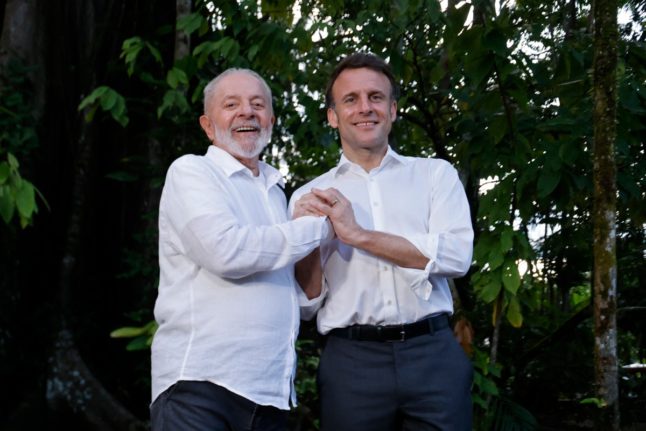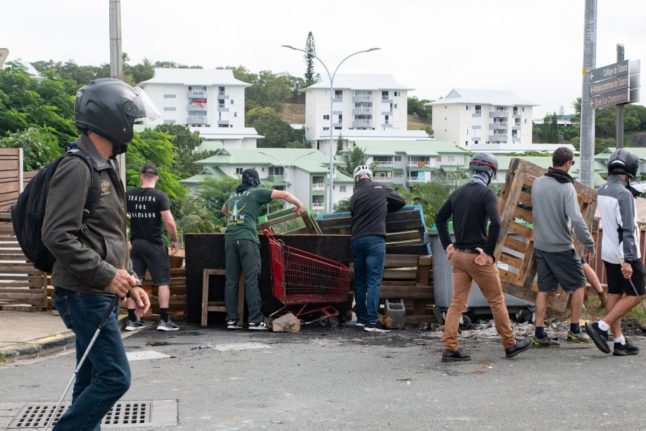Images of the pair smiling and warmly embracing during Macron’s three-day visit to Brazil circulated online this week alongside light-hearted captions and montages suggesting a loving relationship between the leaders.
“Some have compared the pictures of my visit to Brazil to those of a wedding,” Macron wrote Thursday on X.
“I tell them it was one. France loves Brazil and Brazil loves France,” he said.
Macron retweeted a picture of himself and Lula smiling during the visit, overlaid on the background of a poster for the romantic 2016 film La La Land.
Certains ont comparé les images de ma visite au Brésil à celles d’un mariage, je leur dis : c’en était un ! La France aime le Brésil et le Brésil aime la France !
Merci, cher @LulaOficial, chère @JanjaLula, merci à tous les Brésiliens que j’ai pu rencontrer, pour votre accueil.… pic.twitter.com/cXfeEuYXBQ
— Emmanuel Macron (@EmmanuelMacron) March 28, 2024
Lula responded to Macron’s tweet, which was also shared in Portuguese, with emojis of the Brazil and France flags alongside two small love hearts.
One picture shared on social media this week showed the leaders raising their arms underneath a large tree in the Brazilian jungle was edited to show them holding red balloons in the shape of a heart.
“They are going to marry in the Amazon and have their honeymoon in Paris,” joked one user on X, while others said pictures from the trip could make up a wedding album.
Macron’s trip to Brazil saw the two leaders announce a billion-dollar green investment plan for the Amazon.
Lula hailed the relationship between the two countries as one that created “a bridge between the global South and the developed world.”
Macron’s warm relations with Lula mark a departure from the frosty ties between the French leader and Brazil’s former right-wing president Jair Bolsonaro, who led the country from 2019 to 2022.



 Please whitelist us to continue reading.
Please whitelist us to continue reading.
Member comments